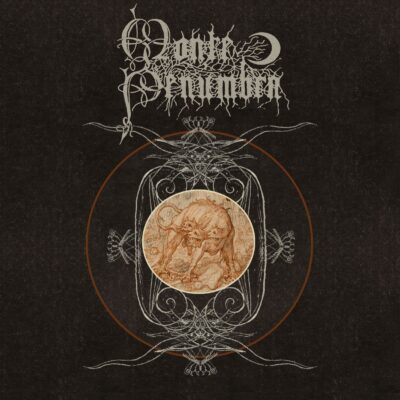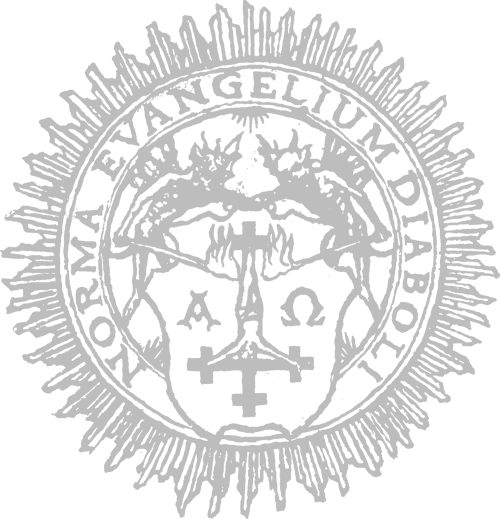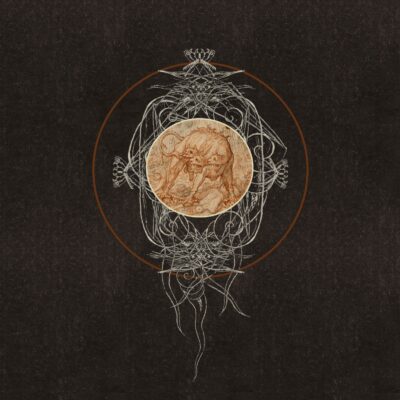MONTE PENUMBRA
While I understand very well the idea of letting one’s art speak for itself, I would like to begin this discussion with the following question: Who is W.uR?
It is public knowledge that you played for ISRATHOUM, a band based in the Netherlands whose last album, Arrows from Below, was released via NEW ERA PRODUCTIONS in 2019. You are also the songwriter of ANGRENOST’s reactionary Nox et Hiems and have contributed to AB IMO PECTORE. Then, of course, there is MONTE PENUMBRA. Our collaboration began in 2021 with the release of As Blades in the Firmament and continued with the brilliant Austere Dawning, freshly released on NoEvDia on December 13, 2024. The project’s debut album dates back to 2013…
W.uR – Time is of course capable of misting up memories, but since I can recall I’ve been drawn to the shadowed side of existence, obsessed with conveying it in one way or another. When I was around 11, I found out I could very satisfactorily do it using my father’s acoustic guitar. It must have sounded rather decent too, since I was being encouraged to pursue music school, which I vehemently refused. I felt that it would be in every respect contradictory to my central aim, which consisted in feeding the impetus or entity behind this personal enterprise, and therefore, by no means did I wish to somehow imperil or enslave it. So instead, at the age of 14, I joined GERYOUS (pre-ISRATHOUM). This particular event marks the descent into something out of which I was never to return, since it is far from being just a creative outlet of sorts, for when the doctrine commonly known as Black Metal solemnly and gravely lays hold of oneself, it is not to be renounced and concerns every outlook on life and death. Under different monikers, many bands and projects followed, some of which never released anything. W.uR surfaced at some point along the way, it is actually a sort of acronym in German, or mnemonic if you will, to aid me in entering a certain frame of mind; one that enables me to attentively eavesdrop the deepest of infernos.
When comparing As Blades in the Firmament with Austere Dawning, there’s a clear sense of continuity. However, the latter feels more condensed, much like a black hole compresses matter if you see what I mean. It is an album that is predominantly guitar-driven, with an incredible drum performance injecting energy, and at times even groove, through an astute dialogue with the riffs.
In a sense – and while comparisons can only go so far – I’d say the album builds on the towering, majestic feeling of MAYHEM’s De Mysteriis Dom Sathanas on one hand, and on the twisted riffing OFERMOD pioneered with Mystérion Tés Anomias on the other, which you have taken several steps further technically by incorporating glissando and other nuances. It is a cold recording, as cold as a frost-covered cathedral in the depths of winter. Some of the riffs are rooted in the splendor of the 1990s, but the album itself is far from a rehash of the past.
There is much more to this album – not least a sense of songwriting that is all too rare these days – but that would be my elevator pitch if I were asked to describe what this album is about.
W.uR – That is definitely a very alluring depiction. A fitting one too, in the sense that its constitution is hermetic and secluded. In its interior, a restless dark power bestirs. Compared with the previous album, the present one also stands as an apocalyptic reverie, so to speak. Austere Dawning, however, delves further into the design of a temple of satanic Urkraft, submitting to its ground as well as excited states of energy, undergoing the sharp ridges as they unfold. It delineates a natural turn in the downward spiral. An intricate work, driven by the will to give rise to a creative product of ritualistic yet defiling essence, which I reckon requires a fair amount of contemplation in order to fathom.
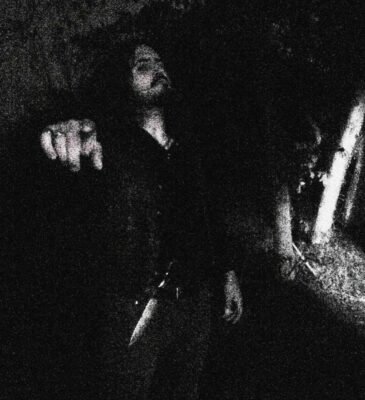
There seems to be a profound musical understanding between drummer Bjarni Einarsson (known for his work with, among many others, SINMARA) and you. Bjarni doesn’t merely play over your riffs; there’s a genuine symbiosis. His organic performance on Austere Dawning makes me wonder: did the two of you rehearse together, or was it all written remotely?
W.uR – Bjarni did not just play over the riffs, no. Unfortunately, the great distance prevents us from rehearsing together, but at present there are of course enough means to emulate or attempt to achieve identical outcomes. I present him my ideas, we create different versions, go over them and determine the way forward. Consequently, the final result tends to be rather different from the initial material, and ultimately, I record the instruments over his drum tracks and not the other way around. He’s easily one of the best drummers in the scene and facilitates every step of the process, it is indeed a privilege to be able to count on him. However, technical prowess or finesse is not enough to partake in MONTE PENUMBRA, as creativity, personality, ideology, in addition to earnest attitude towards the genre, are just or even more important. Bjarni combines all those aspects admirably and I commend him for that. I would also like to give credit to Stephen Lockhart for having the vision to form this alliance between the two.
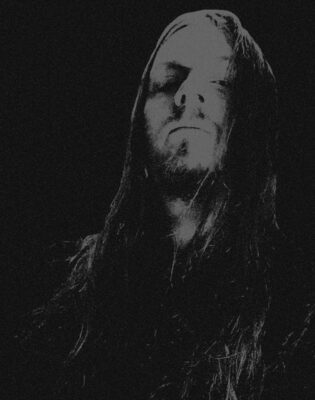
Your previous drummer was Mons Vcnt. While he may no longer sit behind the drum kit, he nevertheless contributed to Austere Dawning by providing its visuals, as well as two ambient tracks that greatly enhance the album’s narrative. You mentioned that his contribution to the album was of great importance, arguably even beyond these objective aspects.
W.uR – From the outset Mons Vcnt has contributed in several aspects, but since he also played drums, and that was the element the material was lacking in order to come to life or at least be physically rehearsed, he took up that task naturally. But I could as well state that he was responsible for the song intro of Kinaesthetic smoke on the debut album, or the insert design for the 7” split with HALF VISIBLE PRESENCE for instance. Therefore, his work on the present album is actually a further expansion of some features which he in the past assisted in creating. Instead of the symbolic and aesthetic effect alone, this time the intent was for the artwork to force its way through the music, and that’s why I’ve invited him to conduct two interludes which could bring about that result.
Some years ago it became logistically impractical for him to continue to play the drums, but we are talking about an individual who has always put the band’s interests ahead of his own, supporting it in every possible way. To illustrate, on one occasion he recorded drums in spite of a severe axe injury on his left hand, just so we could keep the studio booking which would’ve been quite complicated to rearrange. It was a massive open wound, right across the base of the thenar eminence, still he carried it out as if nothing had happened, occasionally changing the blood and pus soaked bandages. The stench and the look on the engineer’s face were just simply memorable.
Besides a friendship that lasts through the decades, there are other pillars sustaining our collaboration – namely the same credo and identical artistic convictions – therefore I firmly believe it is far from being over and will surely not be restricted to MONTE PENUMBRA alone.
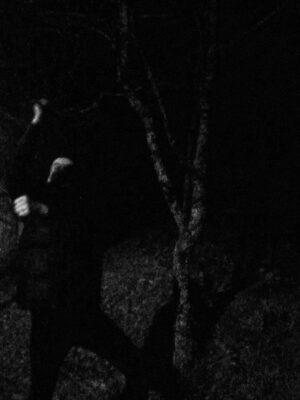
You have been involved with Black Metal for a long time. Personally, I recall that around the turn of the millennium – shortly after turning twenty, in other words – I began to feel immensely dissatisfied with the escapist nature of the genre, the way it was largely rooted in teenage imagination, rebellion, and angst. Becoming an adult didn’t mean abandoning the fascination with the sinister; quite the opposite, it demanded an even deeper plunge and a multi-layered, complex radicalism. In a sense, I felt that to remain true to Black Metal’s essence – its profound calling, the sinister in a nutshell – it was necessary to be loyal to its quintessence, but not to the genre’s established tropes. In short, conquerors write the rules; others merely abide by them.
W.uR – Absolutely. Of course I know which time period you are referring to. The essence of the movement had withered to an extent that there was basically nothing left to hope for anymore. A sense of bereavement was setting in when NoEvDia’s most emblematic releases pumped new life to a moribund genre. Such an exceptional outburst that, wherever you look, you can still find fragments of that emanation, it was doubtlessly a crucial turnaround.
Black Metal has always been the serpent in this cultural universal which we call music. Its slithering has indeed suffered significant changes throughout its existence and long seems now to be the discussion whether it is dead or not. I can only be certain of one thing: in the event that it has in fact perished, then my work is meant as a vicious post mortem bite reflex, fiercely injecting its venom. All the rest I regard as irrelevant.
–
Building somewhat on the previous question, and considering your varied capabilities as evidenced by your discography, I was wondering if you could outline some uncharted territory for Black Metal from a musical standpoint. Does it rely solely on imagination? And an additional question: if there is one thing left for this genre to conquer, what would it be?
W.uR – I do not wish to speak for others, but there’s definitely uncharted territory for me to tread, both in a traditional, as well as in an unconventional approach. As long as it dignifies the ideological core, innumerable paths open up. Personally, I don’t think it solely relies on imagination. Of course it involves a great deal of exertion and different faculties, however what I often refer to as the “commanding hand” – a direct channel to the spirit – is paramount and can not be undervalued. What instrumentation is concerned, I tend to believe that if it surfaces to some degree from the subconscious, then it is always one step closer to worthy fruition.
I actually assume it still has a lot to thoroughly conquer, for the premisses of its foundation are not circumscribed in a given period of time, but rather unbounded in perpetuity. I will nonetheless single out a point that to my way of thinking needs to be accomplished: this art form must be once and for all elevated from plain metal music, as this association results in belittlement and disfigurement of its ethos.
An intriguing literary figure from Portugal is, of course, Fernando Pessoa. Some may be familiar with The Book of Disquiet, while others might recall his brief collaboration with Crowley. He was a mysticist with a broad range of interests in that field. I was wondering if Pessoa’s work – or perhaps his persona – has any significance to you or your artistic endeavors?
W.uR – A very distinctive mind indeed. I believe he also translated some of Crowley’s writings, as well as most of Helena Blavatsky’s bibliography. His own work portrays a melancholic blend of poetry and philosophical thought which is truly remarkable and has become a classic. Even though I can not pinpoint any significant relevance to what I do, there are some aspects of Pessoa which perhaps have been ancillary somehow, e.g., his heteronyms were probably my first encounter with the pluralisation or fragmentation of the self in literature. From the classicism of Reis to the “non-pensée” of Caeiro, I consider it to be an outstanding example of how rich and diverse the projections from the core of a single individual can be.
–
George Agostinho Baptista da Silva is another such intriguing intellectual figure from Portugal.
Black Metal is a highly assertive counter-culture, wielding a sword against the world. I bring up da Silva because he believed that truth can only ever be found in the sum of all conflicting hypotheses – in other words, in paradox. In a genre often defined by its unyielding paradigms, expressed without much afterthought, where would you see the place for paradox?
W.uR – And to think that in the 90’s his interviews were broadcast during prime time on television… surely gives a demonstration of the intellectual downgrade that form of entertainment has suffered in the meantime. I must confess the body of beliefs of prof. Agostinho is not overly vivid in my mind. Nevertheless, there’s one central notion that stuck with me: the conviction that everyone is born a poet and an entirely single individual, whose sole purpose should be to fulfill himself. I find it quite paradoxical that particularly in a genre that supposedly celebrates individualism, there seems to be a sickening need for acceptance, which in many cases deprives it of substance, of its raw mysticism at least, resulting in conformity to other musical scenes. Be it in live settings, releases or press, one must be very attentive to prevent the world from wielding the sword back. The genesis of this movement should remain dangerous and untamed, its roots are to be nourished by hatred and religious defiance, it must not turn into a hill of grazing sheep.
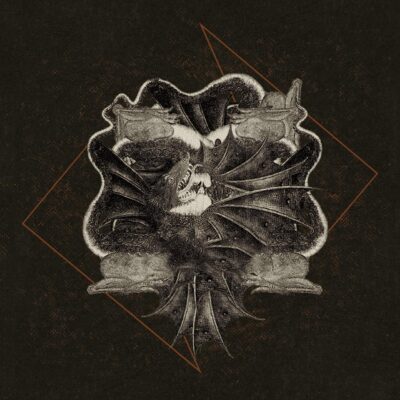
The lyrics for Austere Dawning are written in a form of English that feels as old as time. The result is undeniably elegant. May I ask what influences and artistic goals guided you in aiming for that specific kind of language?
W.uR – First and foremost, it would be utterly unnatural to lyrically limit myself to modern, everyday language. I certainly look upon Black Metal as an erudite form of expression; as such, stylistic devices are an integrated part of its kernel. By using this type of language, I indubitably intend to give prominence to the timeless nature of the subjects, as well as to create a fitting rhetorical fingerprint. But looking at the matter objectively, I believe the form of English you brought up is probably in part the result of the intense study of Milton’s and Shakespeare’s work in my academic years. Thus, I am simultaneously inclined to believe I sometimes use it by default rather than by design, to be honest.
–
The closing words of the album are as follows: Thou art the devil’s house, for thou workest the devil’s will. Could you shed some light on the path that leads to this conclusion?
W.uR – Ignorant and sapient alike, for ages humanity has striven to achieve a higher spirituality, engulfed and engrossed by the innominate, in the search of the throbbing pulse of the “divine”. However, when carefully looking inwards, one will de facto find its antipode, as the devil is father and present in every part of our being – Homo homini lupus est – it unveils our inherited nature and constitutes the bridge to the primordial self. That I believe represents the eternal recurrence of the soul, its austere dawning; the everblooming act of devilry, as the spark that ignites the imposed curtains of this mundane world.
